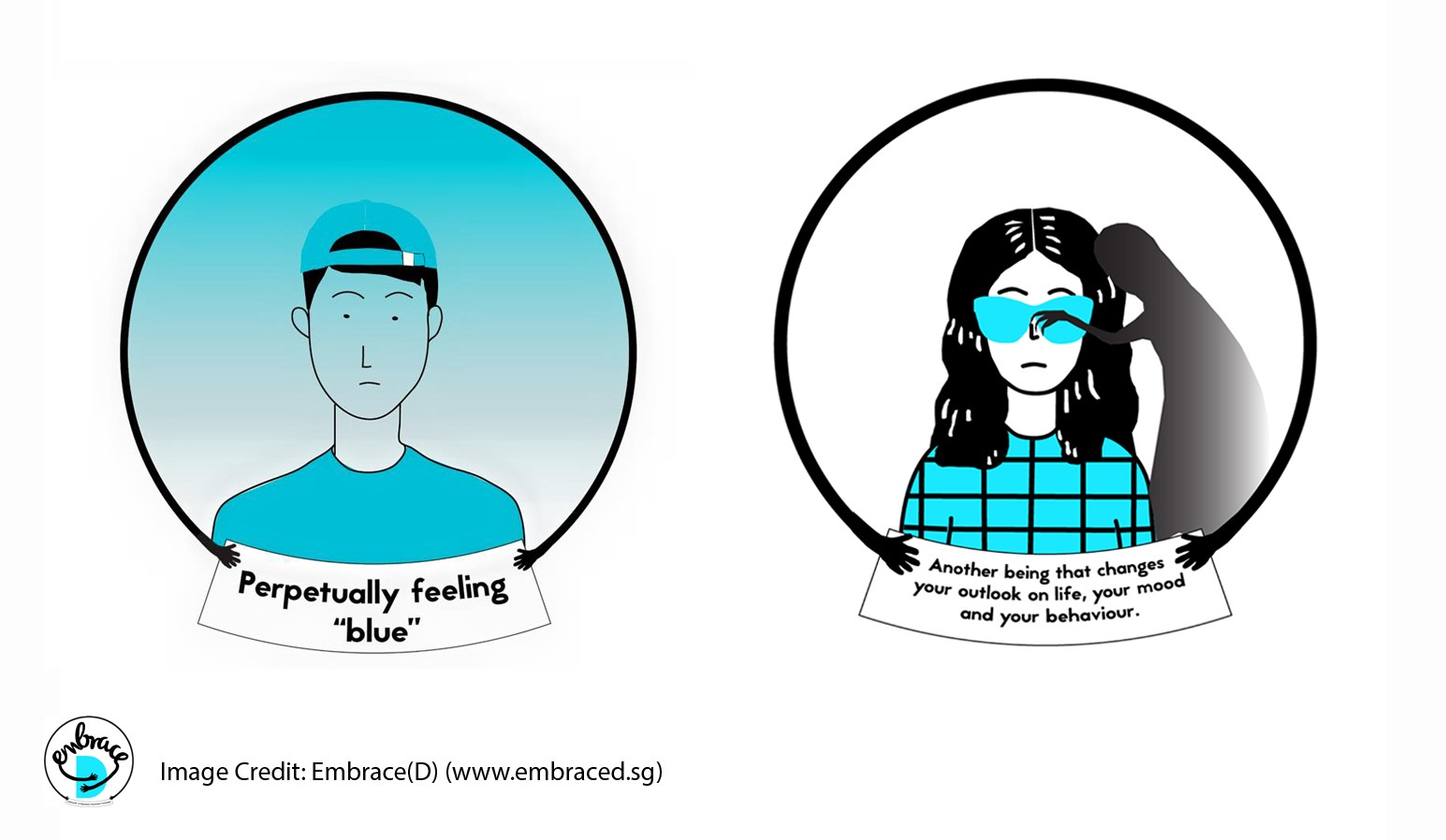Individuals with bipolar disorder experience moods that swing between mania and dysphoria over distinct periods of time, and this affects their ability to function in daily life. As its symptoms may seem like separate problems, bipolar disorder is often not easily spotted when it starts.
Bipolar disorder often develops during late adolescence or early adulthood, and can be managed with medications and psychotherapy
Individuals with depression experience
dysphoria for a prolonged period of time for at least 2 weeks. For many, there is a sense of emptiness and hopelessness. They may feel guilty and lose interest in the things they used to enjoy. Other signs include constant tiredness, persistent aches or pains, and suicidal thoughts.

Depression is one of the most common mental illnesses in Singapore and the world. Left untreated, depression is the number one cause for suicide. Many treatment options are available and mental health professionals can help you evaluate the options.
